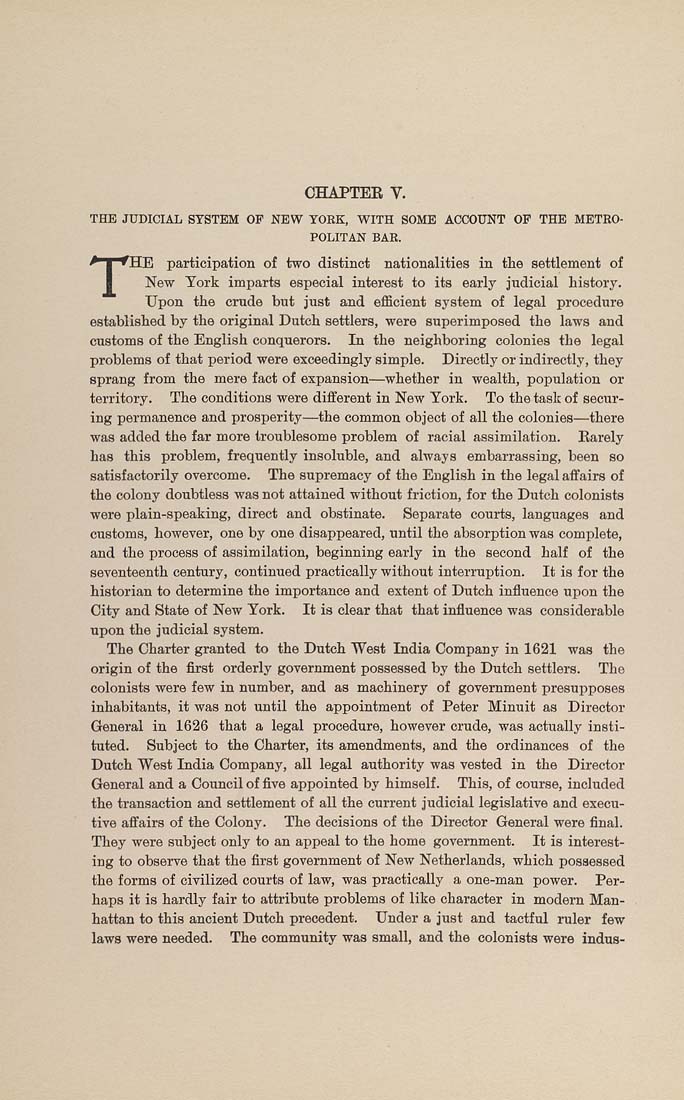CHAPTEE V.
THE JUDICIAL SYSTEM OF NEW TORE, WITH SOME ACCOUNT OP THE METRO¬
POLITAN BAR.
THE participation of two distinct nationalities in the settlement of
New York imparts especial interest to its early judicial history.
Upon the crude but just and efficient system of legal procedure
established by the original Dutch settlers, were superimposed the laws and
customs of the English conquerors. In the neighboring colonies the legal
problems of that period were exceedingly simple. Directly or indirectly, they
sprang from the mere fact of expansion—whether in wealth, population or
territory. The conditions were different in New York. To the task of secur¬
ing permanence and prosperity—the common object of all the colonies—there
was added the far more troublesome problem of racial assimilation. Rarely
has this problem, frequently insoluble, and always embarrassing, been so
satisfactorily overcome. The supremacy of the English in the legal affairs of
the colony doubtless was not attained without friction, for the Dutch colonists
were plain-speaking, direct and obstinate. Separate courts, languages and
customs, however, one by one disappeared, until the absorption was complete,
and the process of assimilation, beginning early in the second half of the
seventeenth century, continued practically without interruption. It is for the
historian to determine the importance and extent of Dutch infiuence upon the
City and State of New York. It is clear that that infiuence was considerable
upon the judicial system.
The Charter granted to the Dutch West India Company in 1621 was the
origin of the first orderly government possessed by the Dutch settlers. The
colonists were few in number, and as machinery of government presupposes
inhabitants, it was not until the appointment of Peter Minuit as Director
General in 1626 that a legal procedure, however crude, was actually insti¬
tuted. Subject to the Charter, its amendments, and the ordinances of the
Dutch West India Company, all legal authority was vested in the Director
General and a Council of five appointed by himself. This, of course, included
the transaction and settlement of all the current judicial legislative and execu¬
tive affairs of the Colony. The decisions of the Director General were final.
They were subject only to an appeal to the home government. It is interest¬
ing to observe that the first government of New Netherlands, which possessed
the forms of civilized courts of law, was practically a one-man power. Per¬
haps it is hardly fair to attribute problems of like character in modern Man¬
hattan to this ancient Dutch precedent. Under a just and tactful ruler few
laws were needed. The community was small, and the colonists were Indus-
|








